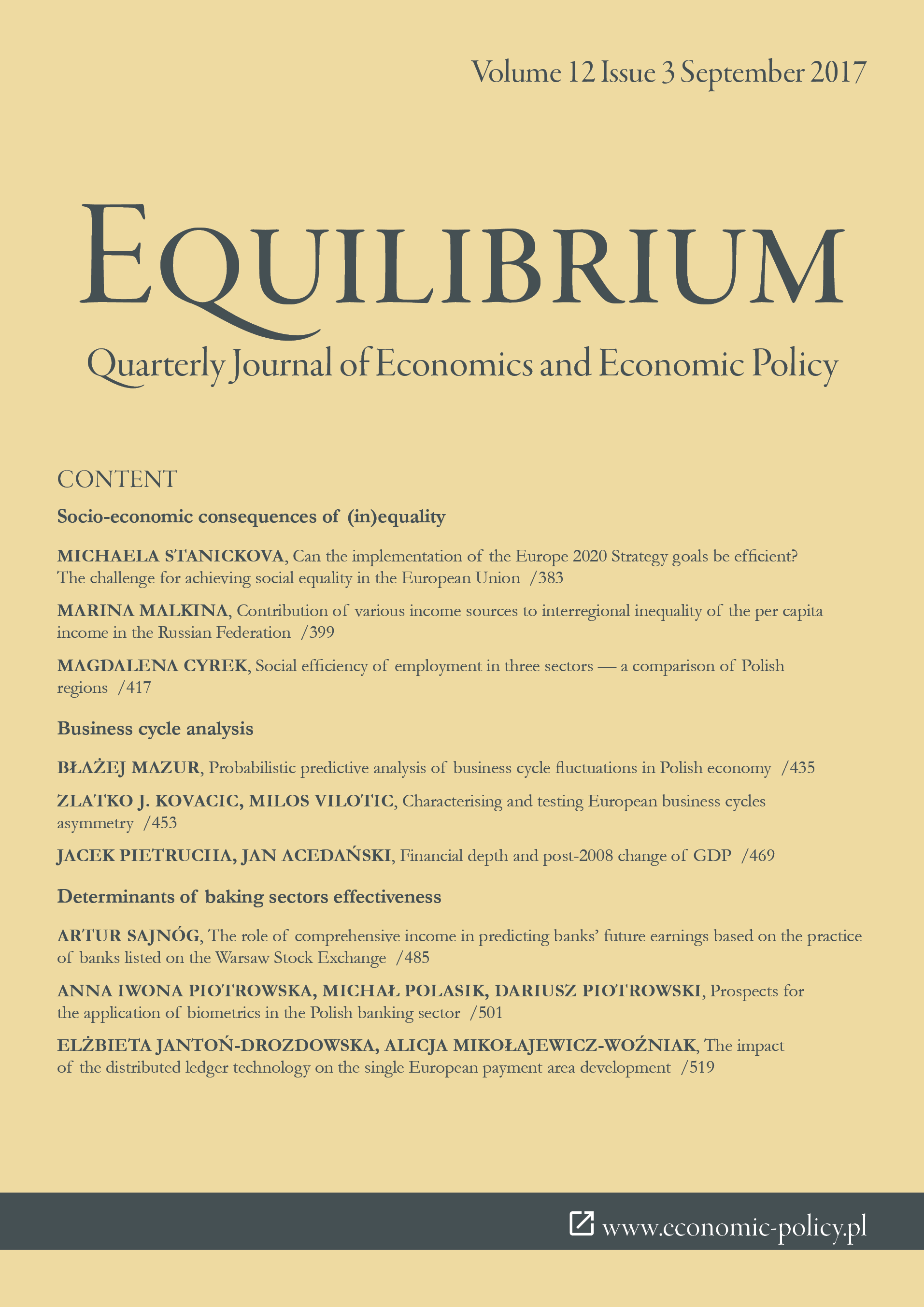Financial depth and post-2008 change of GDP
Financial depth and post-2008 change of GDP
Author(s): Jacek Pietrucha, Jan AcedańskiSubject(s): Economy, Supranational / Global Economy, Economic policy, Evaluation research, Transformation Period (1990 - 2010), Present Times (2010 - today), Financial Markets
Published by: Instytut Badań Gospodarczych
Keywords: financial development; credit; economic crisis; recession;
Summary/Abstract: This paper researches the relationship between financial depth (private credit to GDP ratio) and the subsequent response of GDP to the 2007+ financial crisis. The prevailing view in the finance-volatility of growth nexus literature is that financial depth reduces production volatility, but this holds true only up to a certain level of financial depth. Another stream of research documents that rapid growth in credit is a financial crisis predictor. Purpose of the article: We ask: did financial depth or its change have any impact on the post-crisis response of the real sector? Methods: Cross-sectional regression, 144 countries. Findings & Value added: The post-crisis GDP response corresponds to a change of financial depth prior to the crisis, rather than to the financial depth itself. The increase of financial depth prior to the crisis is statistically significant to the extent of GDP drop; in countries where the credit-to-GDP ratio surged prior to the crisis, the post-crisis response of the real sector was more pronounced. There is no evidence that financial depth negatively affected the extent of the GDP drop after the 2007+ financial crisis; some calculations suggest that the effect is slightly positive (i.e. the collapse was less severe in the countries with higher financial depth). The variables relating to financial depth affected the response of GDP mainly in countries where financial depth is relatively high.
Journal: Equilibrium. Quarterly Journal of Economics and Economic Policy
- Issue Year: 12/2017
- Issue No: 3
- Page Range: 469-482
- Page Count: 14
- Language: English

